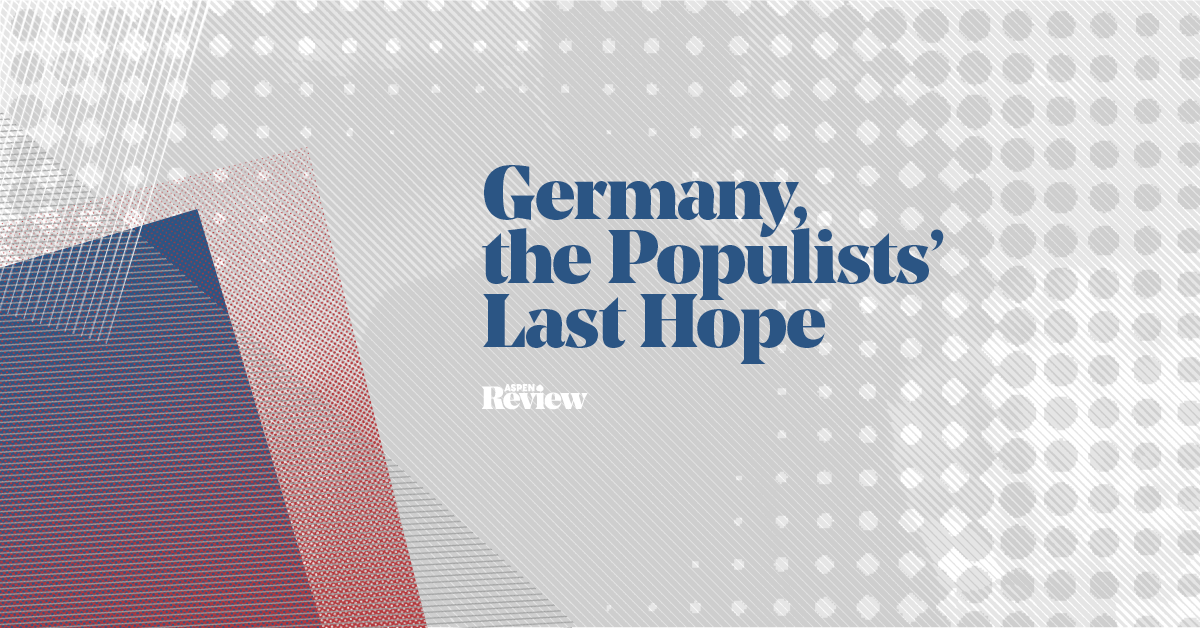Law and Justice (PiS) has worked hard to earn the title of the most anti-German among today’s ruling parties in the European Union. So it may seem surprising that in the new foreign policy guidelines presented by the new Foreign Minister Jacek Czaputowicz, Germany is PiS’s last hope for saving Poland from marginalization in the European and international arena.
The Law and Justice government was supposed to raise Poland from its knees, but instead it brought it to the ground in just two years. It was supposed to take Poland out of the peripheral condominium, where it had allegedly begged for mercy of colonial powers. Instead, it engineered a self-isolation of the greatest degree among new EU member states. From Washington to Tel Aviv, from Kiev to Prague, no one cares for the opinions of the Polish government or treats it as a reliable partner. And no one wants to talk with it, except for a few countries which are doomed to working together with Warsaw due to their proximity, economic interests, their political situation, and the balance of power within the European Union. Germany is the most important among these countries. The PiS government knows about it, it is its ace in the sleeve which was now put on the table.
You could venture the claim that Polish foreign policy no longer exists. There is only PiS foreign policy: protective measures aimed at preventing the ruling party from being held accountable by EU institutions for deliberately violating the constitution and the principles of the rule of law. Poland Anno Domini 2018 does not comply with the so-called Copenhagen criteria. It is a set of principles the fulfilment of which was a condition of EU entry in 2004. Today, the Poles would have lower chances for being admitted than the Serbs (and not much greater than the Turks).
However, it is easier not to let the fox into the henhouse than to drive it away. The example of Poland (but also of Hungary) shows that EU institutions are in fact helpless against those member states where the ruling parties do not recognize any international obligations besides those resulting from bilateral relations. “The core of diplomacy are bilateral relations,” said minister Czaputowicz. “The European Commission is not a supergovernment and the European Parliament is not a superparliament.”
It means in practice that the PiS government does not intend to back down in its confrontation with the European Commission, for thanks to the support of Hungary and the Baltic states it does not fear the consequences of launching the procedure provided for in Article 7 of the European Union Treaty. And at the same time, it counts on a restrained approach of Berlin to proposals for making respect for the rule of law a factor in the division of EU funds, for Germany “is our main political and economic partner in the EU.”
This optimism and “betting on Merkel” by PiS are not unfounded. The greatest countries of Central Europe, that this Germany, Poland, and Hungary, indeed have a common interest in preserving the EU status quo. None of these states want a “two-speed Europe,” a European “federation” or a “hard core.” They do not want it, for a consequence of such a “reform” would be a new division of the continent into the West and the East, and hence a tangible worsening of the international, geopolitical, and of course economic position of Mitteleuropa.
Mitteleuropa, as opposed to the Intermarium or Trimarium promoted by PiS, is a real geoeconomic entity, which for the German economy is what China is for the world economy. In the last quarter-century, Germany invested a lot of political and financial capital in this region. A significant difference between the Vistula valley and the Pearl River Delta is that Mitteleuropa, unlike Communist China, has no single decision center; power is dispersed between centers in Berlin, Vienna, Warsaw, Budapest, Vilnius, and Prague (which of course does not mean that they are equally influential). Still, the fact remains that Mitteleuropa is a necessary point of reference both for German and Polish foreign policy, security, and economy. Germany will not abandon it for the sake of the illusory prospect of leadership over “Carolingian Europe,” especially since it would have to be shared with France, for the same reasons for which in the foreseeable future the Poles will rather not turn their backs on Germany in order to resurrect the Commonwealth together with Ukraine.
Berlin’s (or more precisely German society’s) opposition to turning the eurozone into a political federation (as proposed by the president of France) make it unnecessary for Poland and Hungary (as well as Czechia) to seriously consider entering the eurozone. From Berlin’s perspective, it is more important that Central European countries do not find themselves in the ruble zone. Polish interests coincide with German ones in this point as well.
It is fascinating in a way how much the policy of Law and Justice is enclosed in the mental space de ned in the 1840s by German liberals and Austrian conservatives, advocates of economic cooperation of the German states from that time and Habsburg Austria. It should make you think that under PiS government, Warsaw reckons only with Germany. The conclusion is that minister Czaputowicz not so much presented the guidelines for Polish foreign policy but showed how PiS politicians destroyed it in the last two years.


